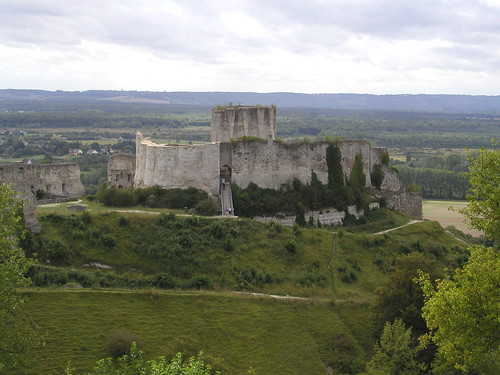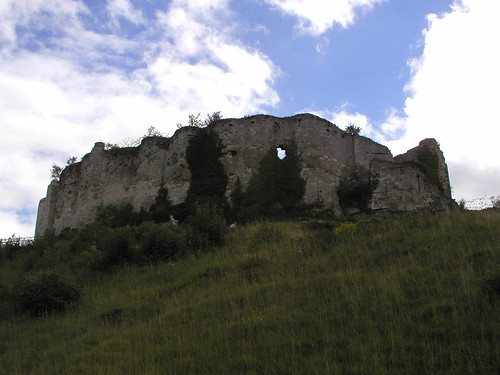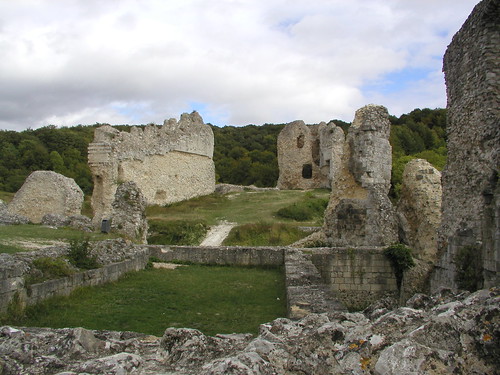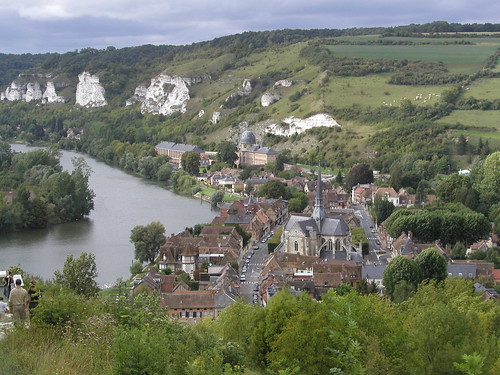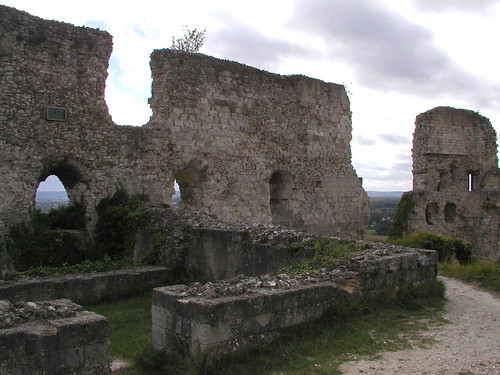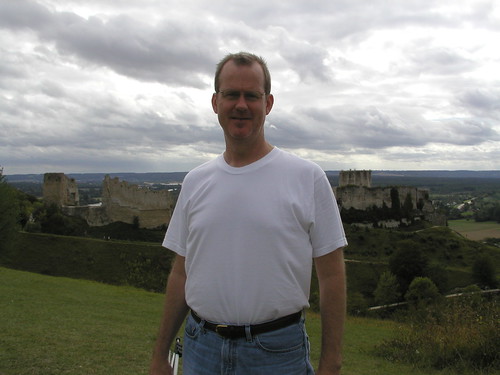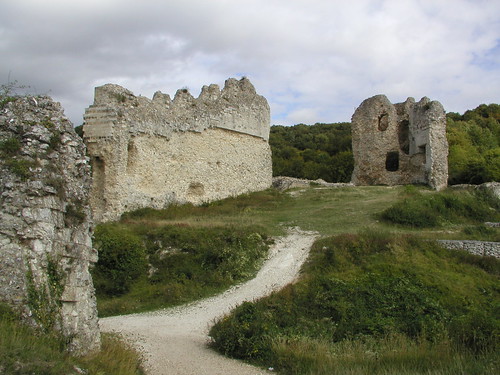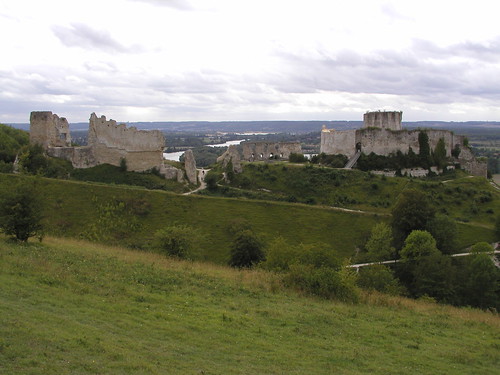Above the town of Les Andelys, the ruins of Chateau Gaillard loom large. This chateau is where Richard the Lionhearted, as king of England and Duke of Normandy, built his fortified castle in 1197 to defend Rouen from the French. The French finally took the castle in 1204 by forcing a way in through…the latrines!
It was a gorgeous day but very windy when we visited…another photo in the running for the 2006 Christmas Card?
Buddy and Holly at Les Andelys-Chateau Gaillard, Normandy. The Seine River is behind us.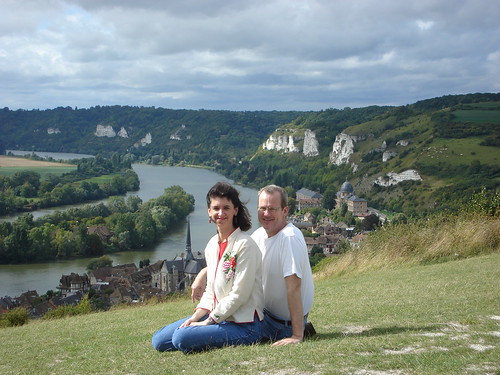
Friday, September 29, 2006
Les Andelys
Thursday, September 28, 2006
Countryside in Normandy
We also learned that Normandy is the home of apples, apple orchards, apple tarts, apple butter, apple brandy, apple cider…apple everything. Besides apple orchards, there are wild apple trees sprouting up eveyrywhere. This time of year is harvest season so the trees were simply loaded with apples. We saw more than one cow craning his neck to pull an apple off the branch, too!
So, upon leaving Rouen, our meandering path took us past chateaux and apple orchards…
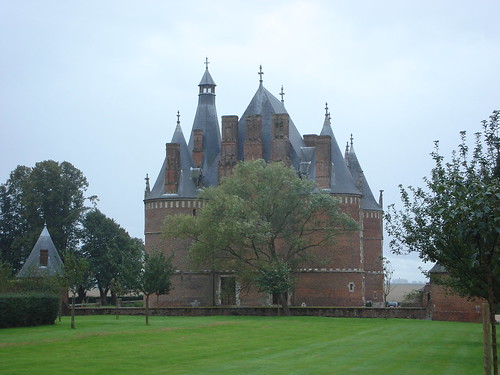
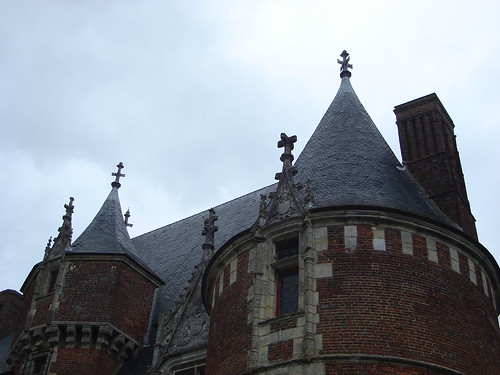
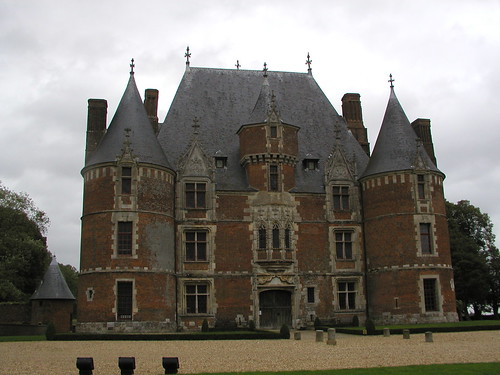
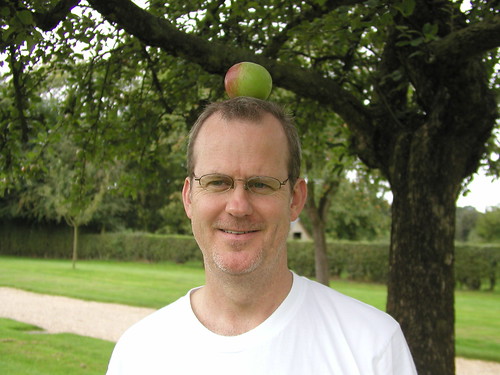
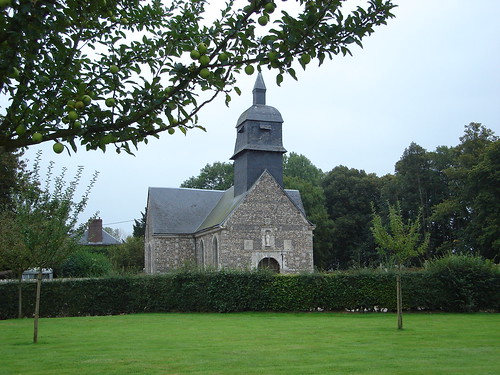
…a quaint little town named Lyons-le-Foret, with, yes, more half timber houses, and a fab-u-lous antique shop, where we almost became the owner of a grandfather clock if only we could have figured a way to get it to Germany…
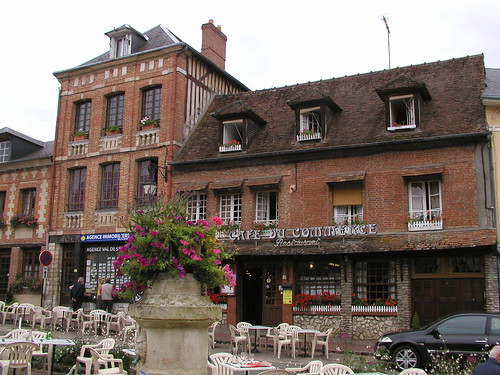
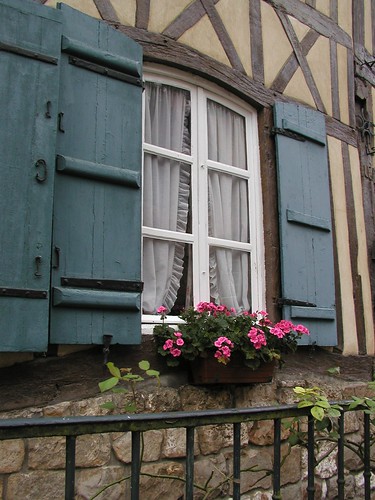
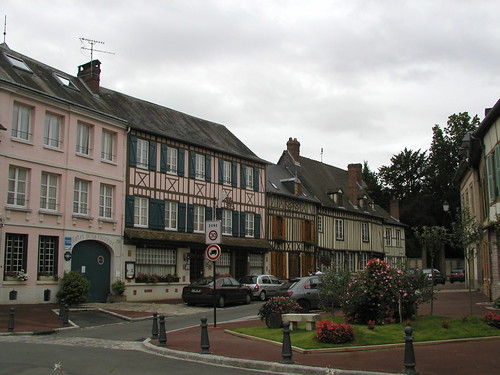
…and the ruins of an ancient abbey, Abbaye de Jumieges, which was founded in 654, plundered by the Vikings in 841, rebuilt by William Longswood, Duke of Normandy in 940, and finally consecrated in 1067. Sadly, the French Revolution forced the remaining 16 monks to leave but the remains are rather interesting.
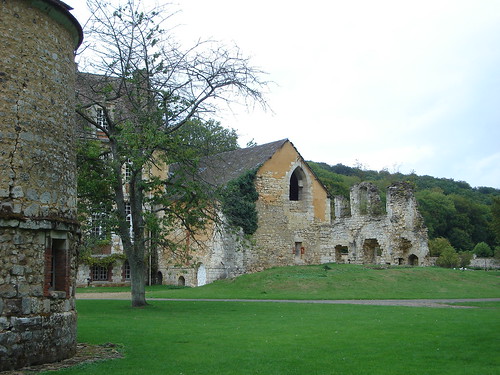
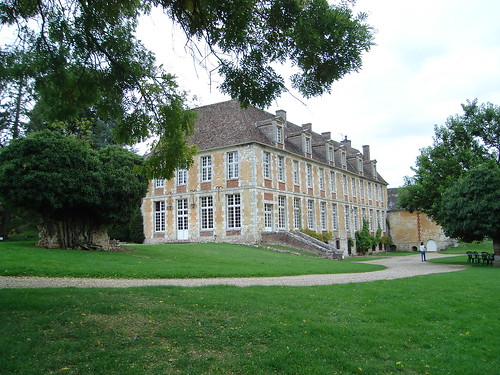
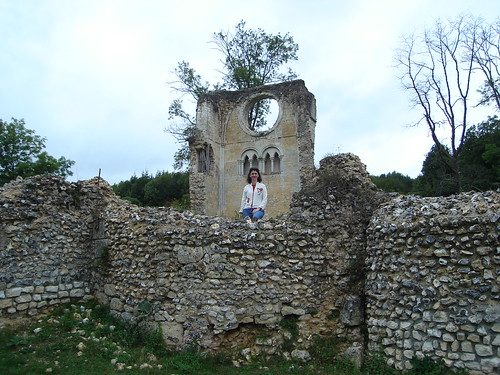
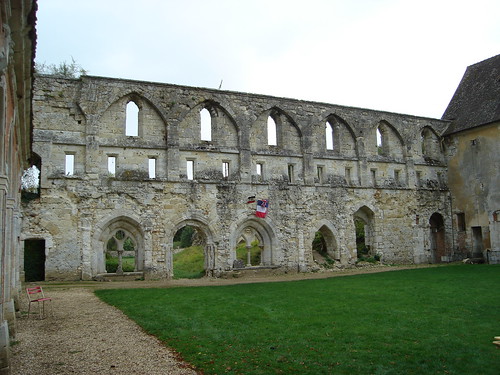
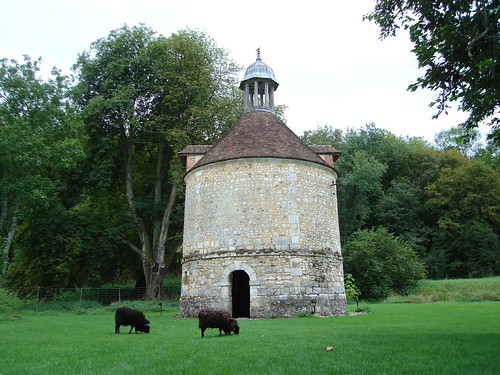
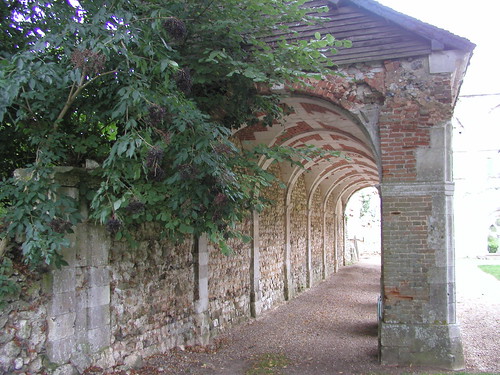
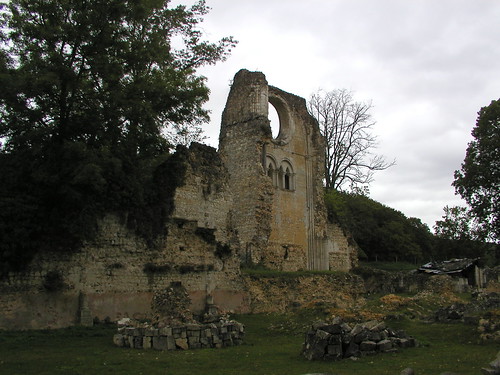
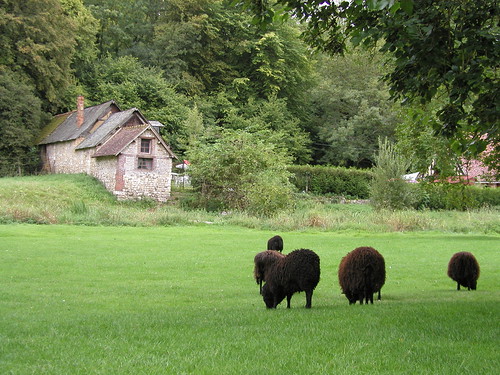
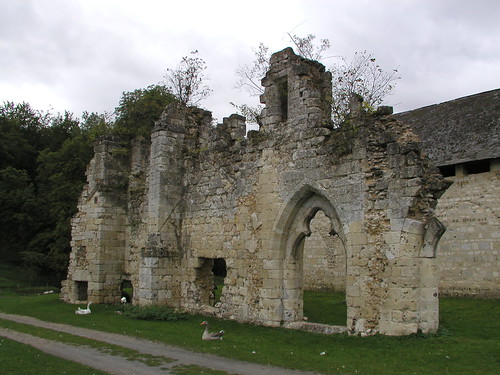
So, upon leaving Rouen, our meandering path took us past chateaux and apple orchards…





…a quaint little town named Lyons-le-Foret, with, yes, more half timber houses, and a fab-u-lous antique shop, where we almost became the owner of a grandfather clock if only we could have figured a way to get it to Germany…



…and the ruins of an ancient abbey, Abbaye de Jumieges, which was founded in 654, plundered by the Vikings in 841, rebuilt by William Longswood, Duke of Normandy in 940, and finally consecrated in 1067. Sadly, the French Revolution forced the remaining 16 monks to leave but the remains are rather interesting.









More of Rouen
Our first full day in France found us exploring more of the cathedral. I noticed that nearly every town has an “eglise”, “abbaye”, and cathedral called “Notre-Dame”, making it somewhat tough to keep vacation photos straight.
Back in Rouen….we checked out the church a bit more. When I say, Normandy is the home of THE Gothic church, that is no understatement….city after city after city had fabulous Gothic architecture. Rouen was simply the first of a long line we saw.
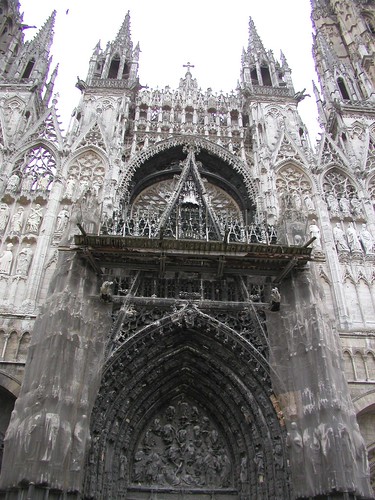
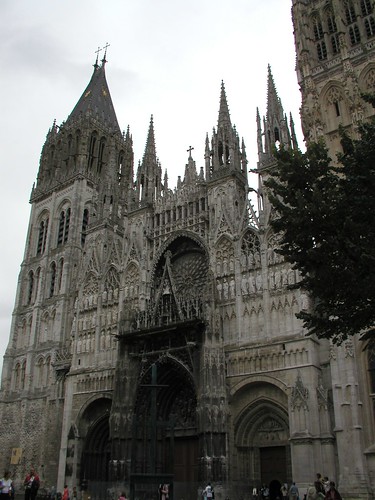
You’ll recognize this “Young” couple.
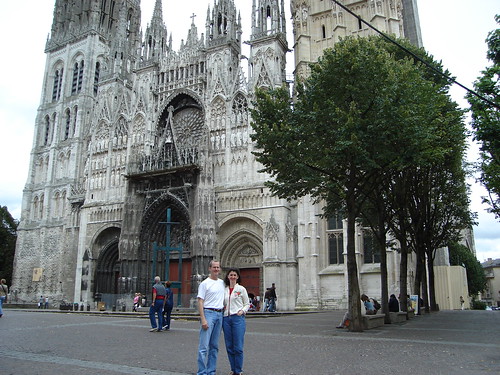
Interior of Cathedral Notre-Dame, Rouen.
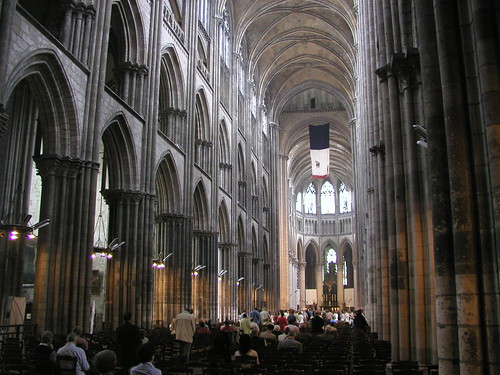
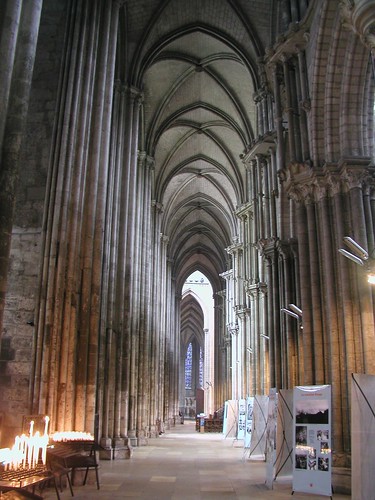
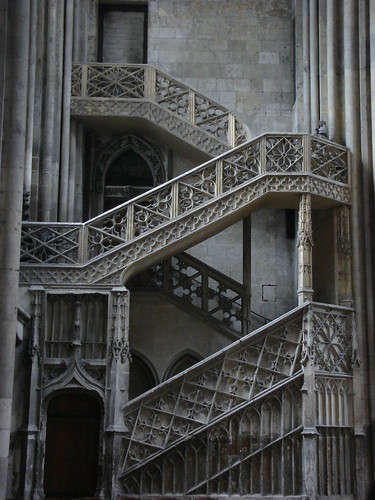
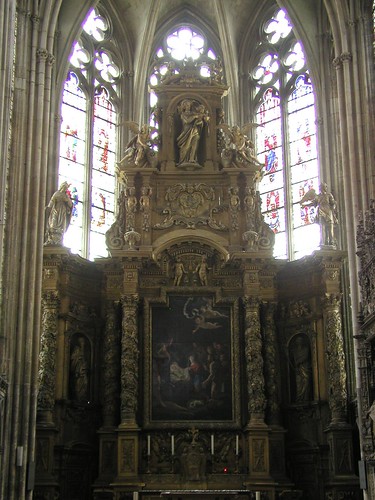
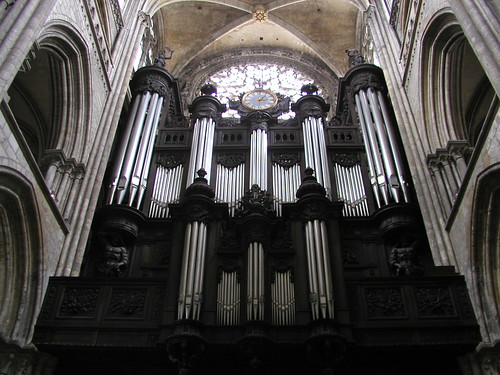
Interesting sidenote: Richard the Lionhearted's heart is buried in this church. Here is the sarcophagy of the Tomb of Richard the Lionhearted.
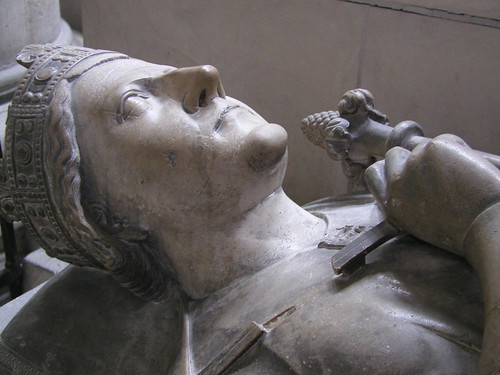
Moving on, we made our way to the “other ”famous site in Rouen. “O Rouen, art thou then to be my final abode?” Well, Jeanne d’Arc, apparently so.
Imprisoned in Rouen after her capture by the English and burned alive at the stake at this very spot on May 30 , 1421. Next to this spot, the very modern Eglise Jeanne-d”Arc on the Vieux Marche.
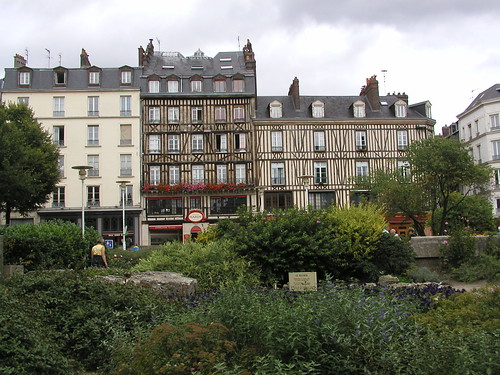
Statue of Jean d'Arc, outside Eglise Jeanne d'Arc.
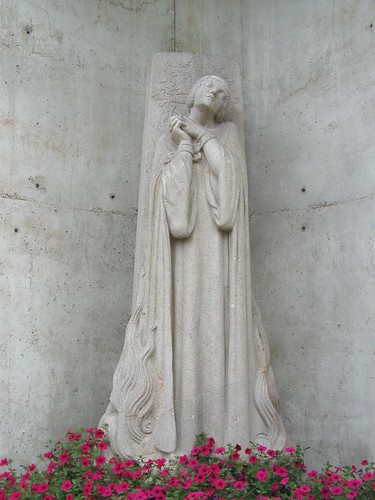
Budman and Hachie Gal in front of the site of Jeanne d'Arc's burning at the stake.
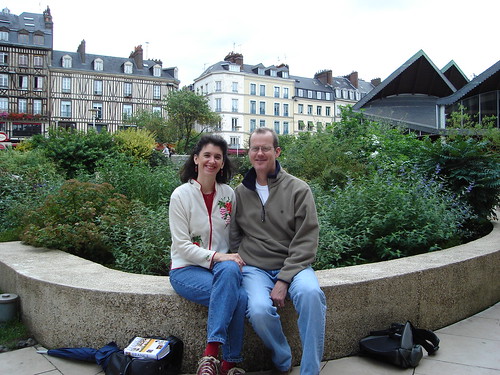
Budman and Hachie Gal in front of Eglise Jeanne d'Arc, Rouen.
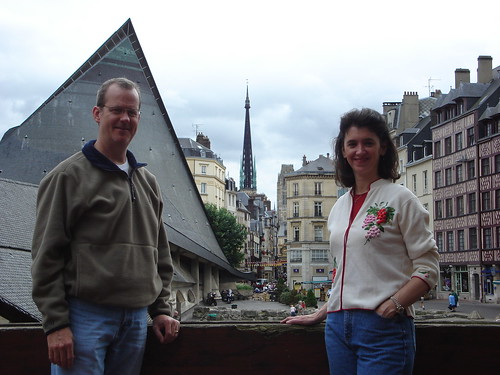
Besides many half-timber houses, which have begun to not tobe such a big deal since we see them everywhere in Germany (yawn), was the most famous street in Rouen, Rue du Gros-Horloge. The arch and Renaissance tower were built in 1527.
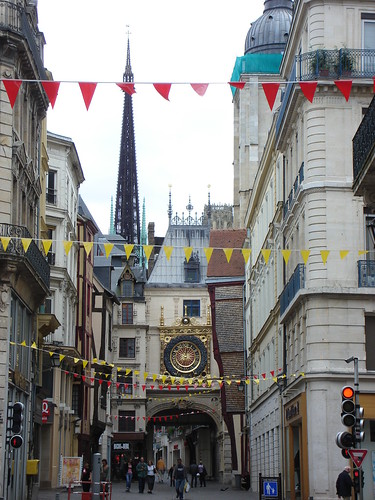
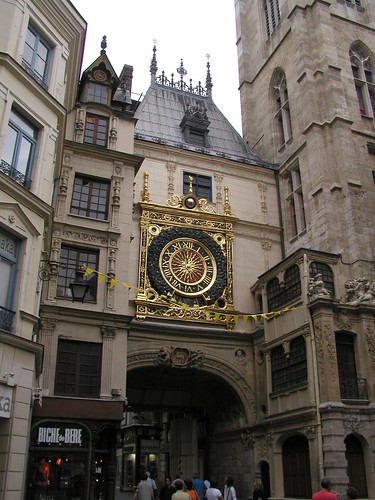
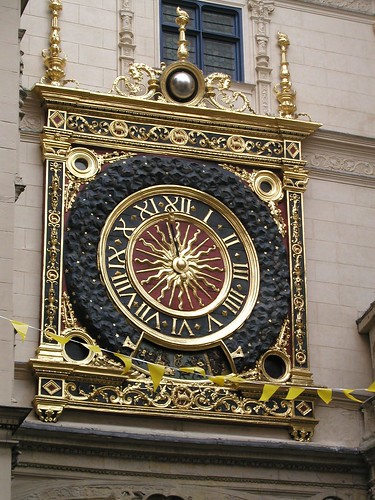
Back in Rouen….we checked out the church a bit more. When I say, Normandy is the home of THE Gothic church, that is no understatement….city after city after city had fabulous Gothic architecture. Rouen was simply the first of a long line we saw.


You’ll recognize this “Young” couple.

Interior of Cathedral Notre-Dame, Rouen.





Interesting sidenote: Richard the Lionhearted's heart is buried in this church. Here is the sarcophagy of the Tomb of Richard the Lionhearted.

Moving on, we made our way to the “other ”famous site in Rouen. “O Rouen, art thou then to be my final abode?” Well, Jeanne d’Arc, apparently so.
Imprisoned in Rouen after her capture by the English and burned alive at the stake at this very spot on May 30 , 1421. Next to this spot, the very modern Eglise Jeanne-d”Arc on the Vieux Marche.

Statue of Jean d'Arc, outside Eglise Jeanne d'Arc.

Budman and Hachie Gal in front of the site of Jeanne d'Arc's burning at the stake.

Budman and Hachie Gal in front of Eglise Jeanne d'Arc, Rouen.

Besides many half-timber houses, which have begun to not tobe such a big deal since we see them everywhere in Germany (yawn), was the most famous street in Rouen, Rue du Gros-Horloge. The arch and Renaissance tower were built in 1527.



Wednesday, September 27, 2006
Rouen Cathedral
Once we re-grouped from the hotel and car experience, the vacation was officially up and running. While technically not Normandy, Rouen is the perfect starting point for a tour of the region. Trivia question: name two things associated with this famous French town?
Answer: (1) The Rouen Cathedral, subject of Monet’s famous impressionistic paintings (you know the ones…same subject …but paintings in different lights, and (2) city where Jean d’Arc (okay, let’s go with the French spelling) was imprisoned and later burned at the stake.
Our first stop was supposed to be a quick tour of the cathedral by night…you all know by now, the obligatory night shot. To our surprise and excitement, the west side of the church (the side which Monet pictured in all his paintings) was the sight of an outdoor light show. Literally 50 or so different lighting techniques were splashed one after another on the side of the church, giving it a rather impressionistic look itself. We spent well over an hour watching it…fascinating.
So, for your enjoyment, some traditional and not so traditional night shots.
Monet's church...by night.
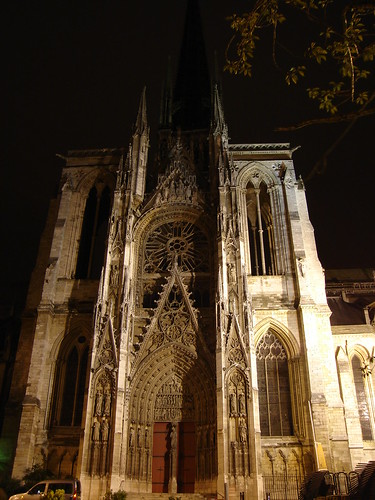
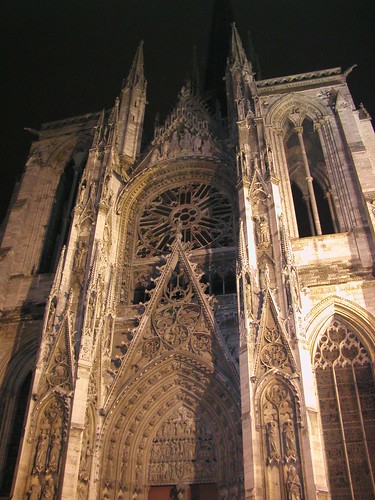
Rouen cathedral as it is normally lit.
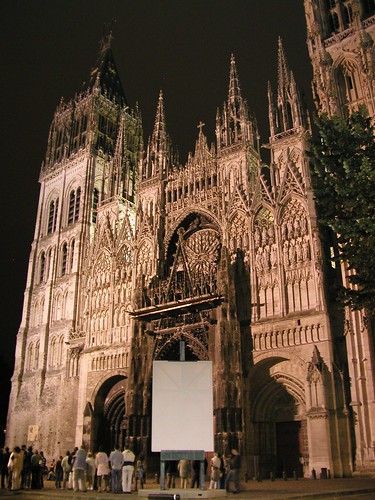
Another view of the Rouen cathedral.
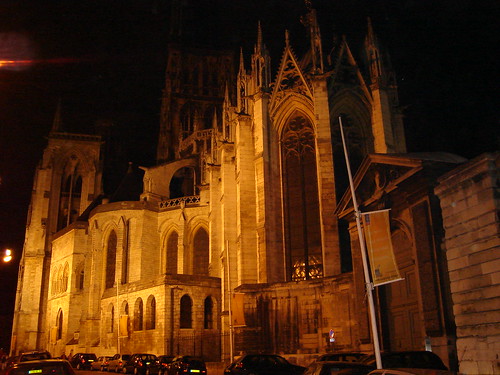
Light show reflected onto the west side of the Rouen Cathedral.
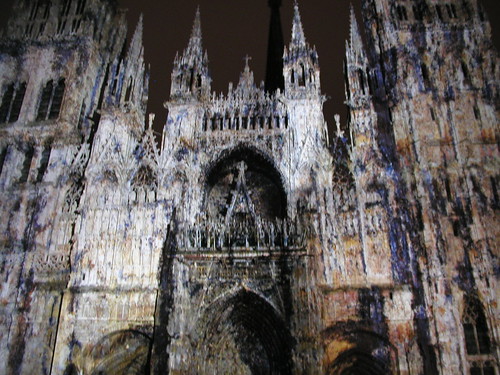
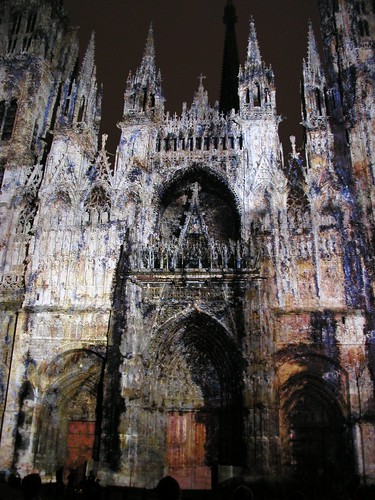
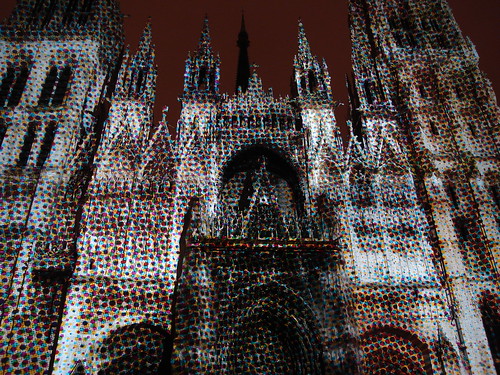
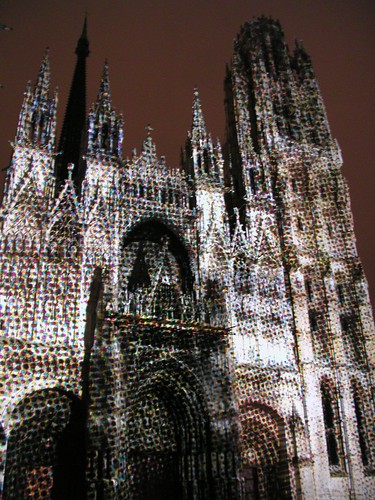
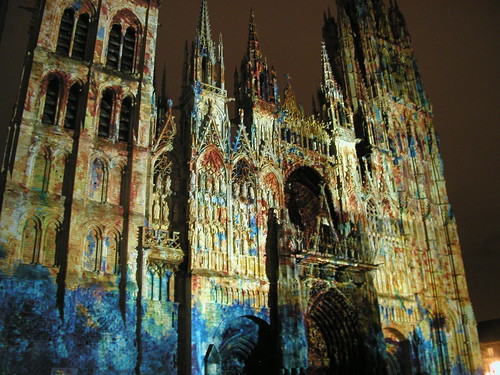
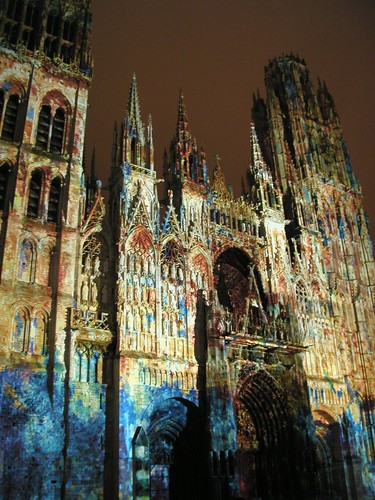
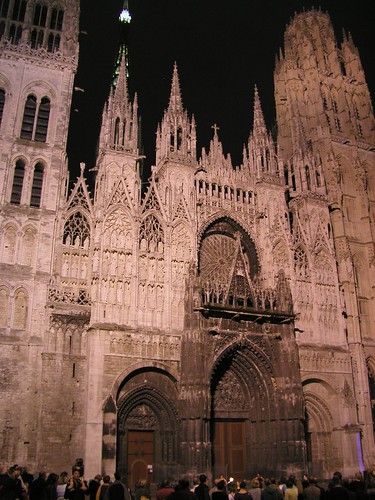
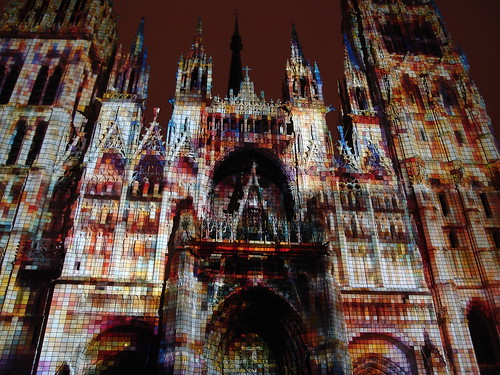
Answer: (1) The Rouen Cathedral, subject of Monet’s famous impressionistic paintings (you know the ones…same subject …but paintings in different lights, and (2) city where Jean d’Arc (okay, let’s go with the French spelling) was imprisoned and later burned at the stake.
Our first stop was supposed to be a quick tour of the cathedral by night…you all know by now, the obligatory night shot. To our surprise and excitement, the west side of the church (the side which Monet pictured in all his paintings) was the sight of an outdoor light show. Literally 50 or so different lighting techniques were splashed one after another on the side of the church, giving it a rather impressionistic look itself. We spent well over an hour watching it…fascinating.
So, for your enjoyment, some traditional and not so traditional night shots.
Monet's church...by night.


Rouen cathedral as it is normally lit.

Another view of the Rouen cathedral.

Light show reflected onto the west side of the Rouen Cathedral.








Subscribe to:
Comments (Atom)
